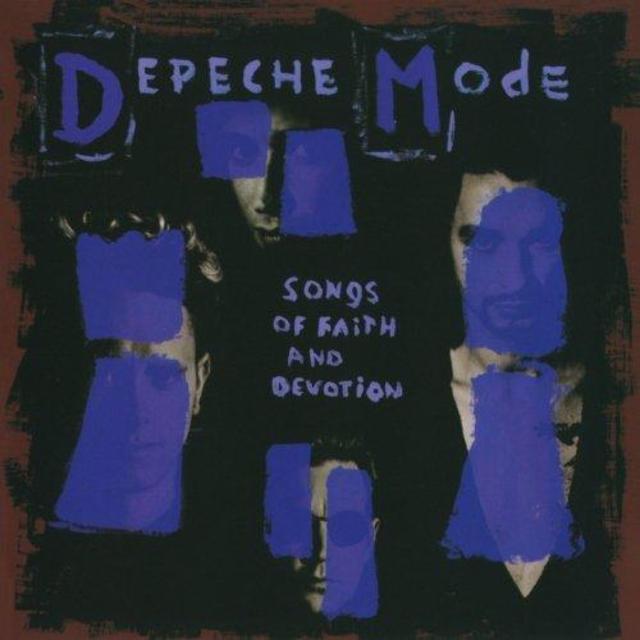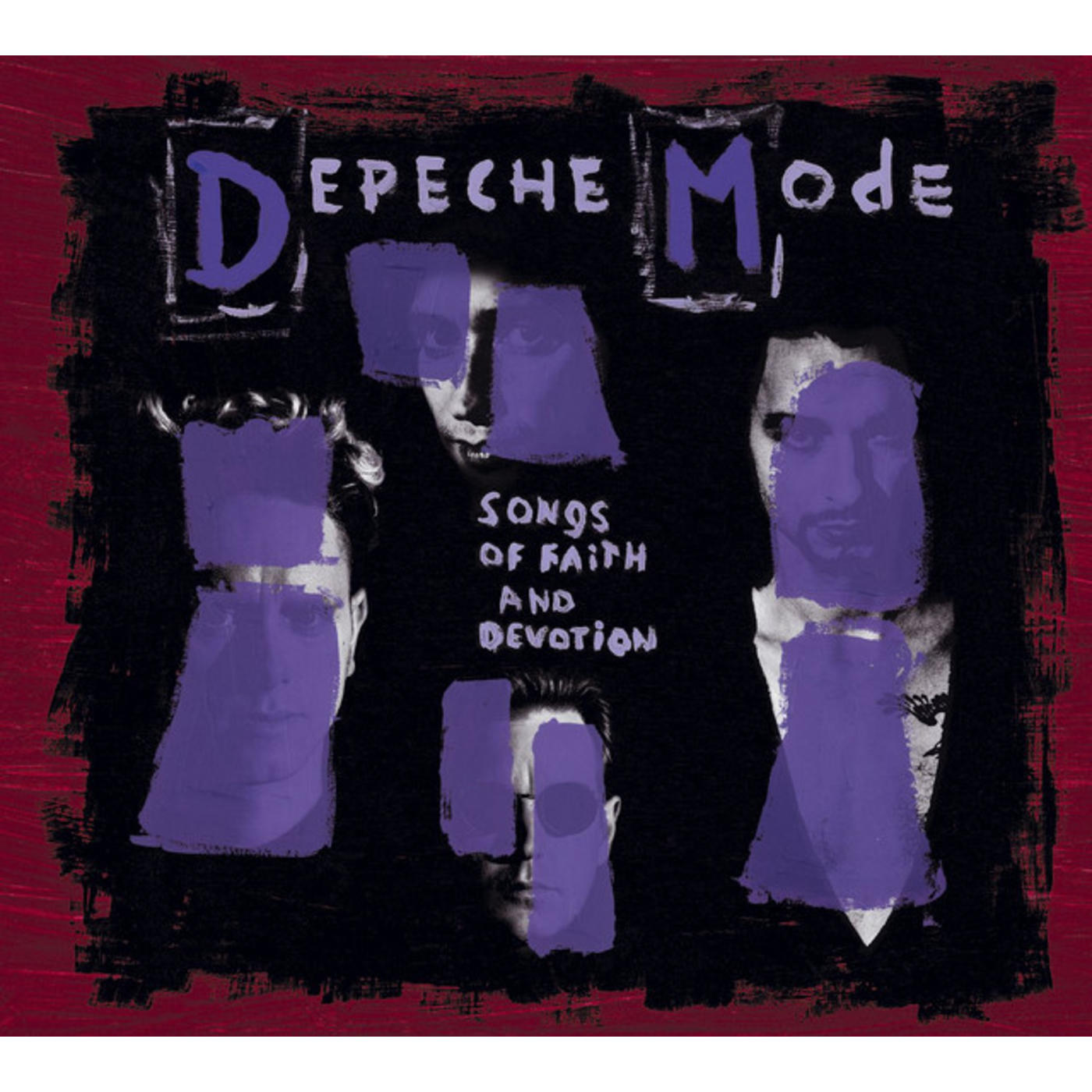Depeche Mode on 180-Gram Vinyl? Time for a (Black) Celebration!

As you may have seen on Friday, we’re going to be putting out the entire Depeche Mode back catalog on 180-gram vinyl throughout the winter and spring. Just in case you missed the memo, though, we wanted to make sure you knew that the roll-out process was officially kicked off yesterday with an in-no-way shabby quartet of albums: Some Great Reward (1984), Black Celebration (1986), Music for the Masses (1987), and Songs of Faith and Devotion (1993).
Not that we wouldn’t recommend getting them all, but if you had to pick just one of ‘em…well, honestly, it’s pretty tough to narrow down the best of the bunch, so how about if we give you a quick nutshell synopsis of all four albums and let you make the call.
For most Americans, this was the first Depeche Mode album to make any sort of impact, as it featured their first US hit single, “People are People,” which made it to #13 on the charts. (There’s also an argument to be made that it’s the first album to find the exit-Vince-Clarke/enter-Alan-Wilder lineup of the band finally meshing properly and firing on all thrusters, but your mileage may vary on that bit.) Other singles from the album include “Master and Servant” and the band’s first double A-side single, “Blasphemous Rumours”/”Somebody,” the latter track sung by Martin Gore, who famously stripped down and recorded his vocal in the nude. Talk about taking the phrase “laying one’s soul bare” literally.
“The songs aren’t good enough, there aren’t any singles, and it’ll never get played on the radio.” That’s how Martin Gore once summed up producer / Mute Records founder Daniel Miller’s initial feelings about the demos for Black Celebration, and as far as the album’s Stateside reception, Miller was spot on about two out of three. You can lay part of the commercial failure in the US on the label deciding to take “Stripped,” a top-20 single in the UK, and bury it as a B-side in favor of “But Not Tonight,” which had been used in the film Modern Girls (unsurprisingly, the version of the album being released on vinyl features the original track listing, banishing “But Not Tonight” back to B-side-dom), but the band ended up victorious in the end: Black Celebration has since gone on to be viewed as one of Depeche Mode’s seminal releases.
A major turning point for Depeche Mode’s fortunes in the US, with the trifecta of “Strangelove,” “Behind the Wheel,” and “Never Let Me Down Again” all making inroads on the singles chart, thanks in no small part to highly distinctive videos directed by Anton Corbijn. Although none of the singles cracked the Billboard Top 40, the increase in the band’s Stateside popularity was quickly confirmed when they toured behind the album. (Cue the plug for D.A. Pennebaker’s Depeche Mode concert documentary, 101.)
There was never much chance that Depeche Mode’s follow-up to Violator was going to match the commercial triumph of that triple-platinum-selling album, but Songs of Faith and Devotion proved that the band was still capable of writing some top-notch tunes. Lead single “I Feel You” took the group outside their usual sonic comfort zone, and while you can probably blame the turn in a rockier direction on the other artists in the charts at the time (think Nirvana and Nine Inch Nails), darned if they didn’t pull it off. The album’s second single, “Walking in My Shoes,” was also a huge success, and while “Condemnation” didn’t follow its predecessors to the top of the US charts, its gospel-infused sound further confirmed that, rather than its members resting on their commercial laurels and following a tried-and-trued format, the music of Depeche Mode was continuing to evolve.


